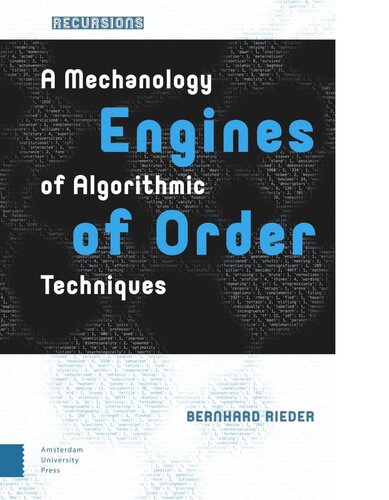

Most ebook files are in PDF format, so you can easily read them using various software such as Foxit Reader or directly on the Google Chrome browser.
Some ebook files are released by publishers in other formats such as .awz, .mobi, .epub, .fb2, etc. You may need to install specific software to read these formats on mobile/PC, such as Calibre.
Please read the tutorial at this link: https://ebookbell.com/faq
We offer FREE conversion to the popular formats you request; however, this may take some time. Therefore, right after payment, please email us, and we will try to provide the service as quickly as possible.
For some exceptional file formats or broken links (if any), please refrain from opening any disputes. Instead, email us first, and we will try to assist within a maximum of 6 hours.
EbookBell Team

4.7
46 reviewsSoftware has become a key component of contemporary life and algorithmic techniques that rank, classify, or recommend anything that fits into digital form are everywhere. This book approaches the field of information ordering conceptually as well as historically. Building on the philosophy of Gilbert Simondon and the cultural techniques tradition, it first examines the constructive and cumulative character of software and shows how software-making constantly draws on large reservoirs of existing knowledge and techniques. It then reconstructs the historical trajectories of a series of algorithmic techniques that have indeed become the building blocks for contemporary practices of ordering. Developed in opposition to centuries of library tradition, coordinate indexing, text processing, machine learning, and network algorithms instantiate dynamic, perspectivist, and interested forms of arranging information, ideas, or people. Embedded in technical infrastructures and economic logics, these techniques have become engines of order that transform the spaces they act upon.